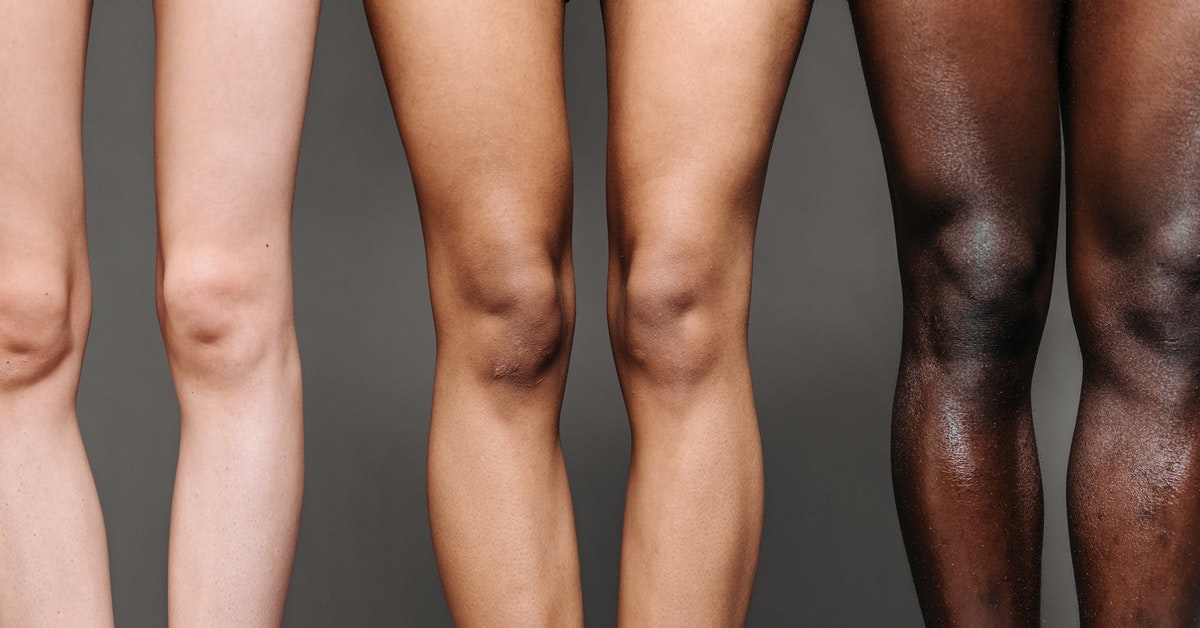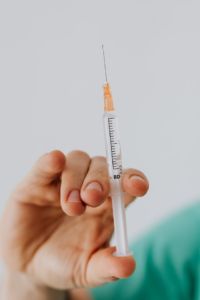
Knees are one of the most impressive pieces of engineering in the human body. The knee consists of several structures that help it move smoothly and absorb shock. Chronic knee pain can make everyday tasks difficult or impossible, so it’s important to address knee pain right away.
Here are three common causes of knee pain and treatment options for each.
Arthritis
Our knees take a lot of wear and tear and are unfortunately prone to arthritis as we age. There are a few different types of arthritis that affect the knee:
Osteoarthritis: Osteoarthritis is characterized by gradual cartilage degeneration and reduction of normal knee function. It causes pain, stiffness, and sometimes swelling. Some people may be more genetically prone than others to developing osteoarthritis, but wear and tear is the main cause. Being overweight significantly increases your risk.
Rheumatoid Arthritis: This is an autoimmune disease that affects the joints. In rheumatoid arthritis, the patient’s immune system attacks joint tissues, breaking them down and causing inflammation. People with rheumatoid arthritis may also experience other symptoms like fatigue, fever, or loss of appetite. There is no cure, but medication can help.
Injury-related Arthritis: Sometimes, a traumatic injury will destroy cartilage within the knee. The long-term symptoms of this are similar to osteoarthritis symptoms. Unlike osteoarthritis, cartilage damage from an injury will not necessarily get worse over time.
People over the age of 40 are more likely to have osteoarthritis, but rheumatoid and injury-related arthritis can affect people of any age. Women are slightly more likely than men to have osteo or rheumatoid arthritis.
Arthritis Treatments
Since rheumatoid arthritis is a symptom of a larger immune system problem, medications that stop the immune system from attacking the joints may be necessary. Some people will be able to manage symptoms with over-the-counter treatments and steroid injections. Corticosteroid injections are often very effective at reducing pain in rheumatoid patients. This is because corticosteroids are powerful inflammation fighters, and inflammation is the main cause of pain in rheumatoid arthritis.
Osteoarthritis patients can benefit from several joint injections to reduce pain and slow disease progression. Cartilage isn’t the only factor in osteoarthritis symptoms. Synovial fluid, a cushioning, lubricating fluid within the joint, gets thinner as we age. Like old oil in a car, this thin fluid no longer does a good job protecting the joint. Hyaluronic acid (HA) is the primary ingredient in synovial fluid, and we are now able to inject HA directly into the knee joint. HA on its own has proven very effective for people in the early stages of osteoarthritis. It coats nerves, reduces inflammation, and protects cartilage.
Mixing HA injections with Platelet-rich plasma (PRP) injections increases pain relief and protection. Platelet-rich plasma is made by taking a small blood sample from the patient and separating the plasma (the clear part of the blood) and the platelets. Platelets are specialized cells that send chemical signals to start the healing process. Since the interior of the knee joint doesn’t have robust blood flow, it is often slow to heal. Injecting platelet-rich plasma jump-starts the healing process. Studies on patients who received both HA and PRP injections showed that they had less knee joint deterioration than expected a year later. Pain relief from PRP injections is long-lasting. Most patients need one “booster” yearly.
Cartilage damage caused by trauma can often be treated with the same treatments as other types of arthritis. HA, PRP, and Corticosteroid injections are all helpful. Patients who’ve experienced a knee injury may also need rehabilitation to help them make a full recovery.
Ligament Injuries and Treatments
Each knee has four ligaments. The names of these ligaments are abbreviated as ACL, PCL, MCL, and LCL. They work together to stabilize the back, front, and sides of your knee. The ACL is located in the center of the knee and helps to control the rotation and forward movement of the tibia (shin bone). It’s one of the most commonly injured ligaments. If you injure a ligament in your knee, you may hear a popping noise at the time of injury and feel a lack of stability in your knee. Pain and swelling are also common symptoms. Depending on the severity of the injury, you may have difficulty walking or not be able to walk at all. Some ligament injuries require surgery, but many can heal without invasive treatment.
A combination of bracing, rehabilitation and medication are all that’s needed for most ligament injuries. Physical therapy can help build muscle around the injury to stabilize the knee. Over-the-counter NSAIDs like ibuprofen can help with pain and swelling. You may also benefit from PRP injections to speed the healing process.
Meniscus Tears and Treatment
The menisci are two rubbery structures that cushion your knee. Tears occur when the knee is twisted while bearing weight or when it’s subjected to trauma, such as during contact sports. The tissue of the menisci become more prone to tears as we age. Standing up wrong from a chair can cause a meniscus tear in older adults. Symptoms of meniscus tears are often delayed and show up two or three days after the injury occurs. Symptoms include pain, swelling, a sensation of the knee giving out, catching or locking, and stiffness.
Part of the meniscus receives excellent blood flow and will heal well with surgery and non-surgical treatment. Unfortunately, most of the menisci receives little to no blood flow. Injuries in this area don’t respond well to surgery and may have trouble healing. In this case, the loose pieces can be surgically trimmed, but they are not expected to heal. PRP injections show promise in treating this area of the meniscus by providing the healing factors found in the blood. Physical therapy is also effective for both types of meniscus tears. Corticosteroids may be recommended to treat excessive swelling.
Knee Pain Treatment in Houston
At Vanguard Spine & Sport, we provide comprehensive knee pain care for many types of knee injuries. Our physical therapists and nurse practitioners will work together to diagnose your injury and provide the optimal treatment plan. Schedule a consultation today to find out how we can help you say goodbye to knee pain.





